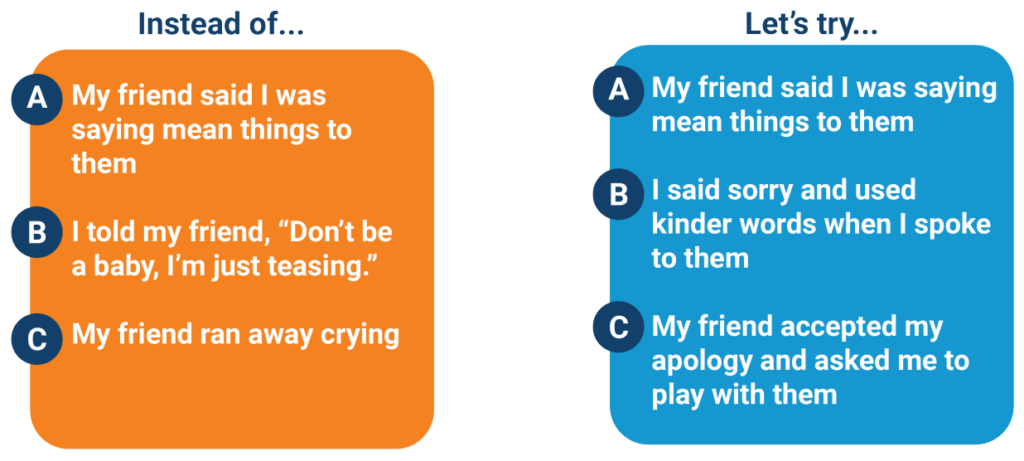Compass-Behavioral
What is Compass-Behavioral?
Compass-Behavioral (Compass-B) is a client-mediated program that focuses on improving the quality of life for youths who have challenges with organization and planning, social skills, and regulating emotions. This service line is provided by a high-level clinician, such as a Board-Certified Behavior Analyst (BCBA®), Licensed Marriage and Family Therapist (LMFT), Licensed Clinical Social Worker (LCSW), Licensed Professional Clinical Counselor (LPCC), or Licensed Psychologist.
Program Components
Assessment
Assessment is completed with the client using a worksheet called the Compass Assessment Element. Its purpose is to discover the client’s strengths and determine what they want to work on in the program. It also helps the client decide which areas will help them in their daily life, such as self-management, self-advocacy, communication, navigating social situations, managing time, and observing their own emotions and behaviors.
Treatment
What makes Compass-B’s treatment different is the self-observation component of the program. A high-level practitioner – a BCBA, LMFT, LCSW, LPCC, or Clinical Psychologist – works one-to-one with the client on the skills they’ve identified that will improve specific areas of their life, like increased fluency in social interactions or daily living skills. Clients are actively involved in creating their own goals.
Treatment is focused on the client directly but can be paired with caregiver training. It utilizes a process called behavior mapping as a form of self-observation, which looks at the chain of events for a behavior:
Antecedent – what occurred before the behavior?
Behavior – what did the client’s behavior look like?
Consequence – what happened after the behavior?
Here’s an example of behavior mapping in action:

Behavior data is then analyzed to identify patterns and areas for improvement as defined by the client. Treatment typically lasts for 6 months and is similar to our Social Skills Groups in many ways.
What are the Goals?
The goal of Compass-B is to reach a point where the client can say, “I feel more confident about X, Y and Z skills.” At the end of treatment, clients take a survey where they measure their level of comfort and confidence in a particular skill. From the clinical side, we’ll look at how the client has increased confidence in a skill or skills by a certain percentage in a specific time frame. Together, these assessments and activities combine to increase a client’s self-confidence in their abilities.

Connect with Us